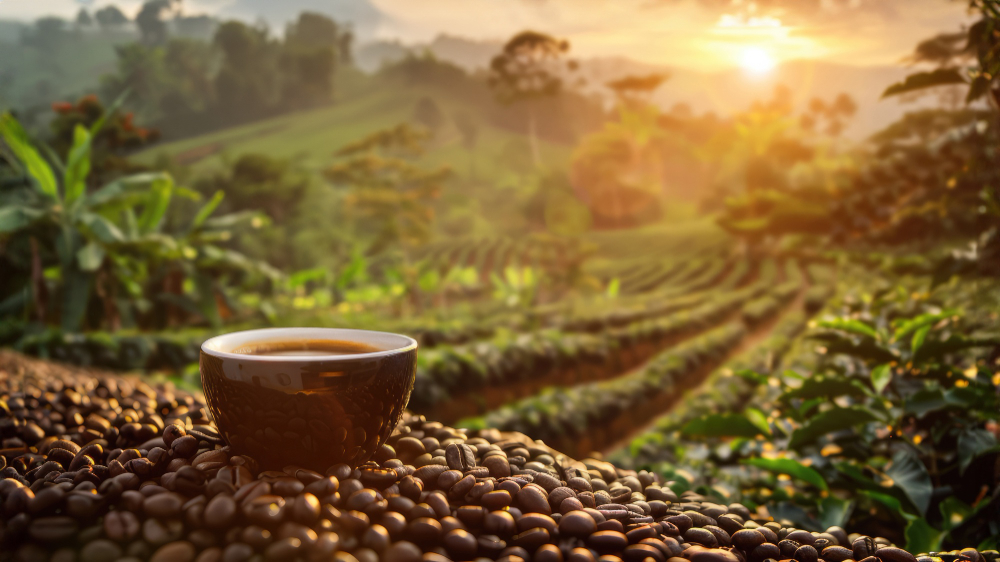Why Organic Coffee Beans Are Brewing a Better Future

Coffee is one of the most beloved beverages on the planet. With over 2 billion cups consumed each day globally, it’s no surprise that coffee has become more than just a morning pick-me-up it’s a cultural staple. But not all coffee is created equal. Increasingly, consumers are turning to organic coffee beans in search of a brew that is better for their health, the environment, and the people who grow it.
In this article, we’ll explore what makes coffee organic, the benefits of choosing organic beans, how they compare to conventional coffee, and how to get the best out of your organic brew.
What Are Organic Coffee Beans?
Organic coffee beans are cultivated using environmentally and socially responsible practices. These beans are grown without synthetic fertilizers, pesticides, or genetically modified organisms (GMOs). Instead, organic farmers use natural methods such as composting, shade-growing, and organic-approved pest control strategies to promote healthy soil and ecosystems.
In order for decaffeinated coffee to be officially labeled “organic,” it must be certified by a recognized organization, such as:
USDA Organic (United States)
EU Organic Certification (Europe)
JAS (Japan Agricultural Standards)
IFOAM (International Federation of Organic Agriculture Movements)
These certifications ensure that the entire production chain from farming to processing to packaging adheres to rigorous organic standards.
The Key Benefits of Organic Coffee
1. Healthier for the Consumer
Conventional coffee farming often involves the use of synthetic pesticides and herbicides. When consumed over time, these chemicals can accumulate in the body and contribute to various health concerns. Organic coffee beans are free from harmful chemical residues, providing a cleaner cup that’s easier on your body.
Moreover, many organic coffee drinkers report a smoother, less acidic flavor and fewer side effects like caffeine jitters or stomach irritation.
2. Better for the Environment
Organic coffee farming plays a crucial role in environmental conservation. By avoiding harmful chemicals, organic farms preserve biodiversity, reduce soil and water contamination, and support pollinators like bees. Additionally, organic methods often involve shade-grown practices, which help maintain forest cover and protect wildlife habitats.
Healthy soil is also a priority in organic farming. Through natural composting and crop rotation, farmers maintain soil fertility and prevent erosion, ensuring long-term sustainability.
3. Support for Fair and Ethical Trade
Many organic coffee producers are also certified under Fair Trade or Direct Trade programs. These certifications ensure that farmers receive fair wages, work in safe conditions, and have access to resources that help improve their communities.
When you choose organic, you’re often supporting small-scale farmers in developing countries who prioritize ethical labor and sustainable agriculture.
Organic vs. Conventional Coffee: A Side-by-Side Comparison
Aspect
Organic Coffee
Conventional Coffee
Farming Methods
Natural, chemical-free
Uses synthetic pesticides and fertilizers
Environmental Impact
Promotes biodiversity, reduces pollution
Contributes to deforestation and runoff
Health Risks
No chemical residues
May contain pesticide residues
Taste
Clean, rich, and often smoother
Can vary; sometimes more acidic
Certification
Requires strict compliance
No certification needed
Price
Often slightly higher
Usually cheaper, mass-produced
While organic coffee may come at a slightly higher price, the benefits often outweigh the cost when you consider your health, the planet, and ethical farming practices.
How to Identify High-Quality Organic Coffee Beans
When shopping for organic coffee, not all products are created equal. Here are some tips to help you find high-quality organic beans:
1. Look for Trusted Certifications
A legitimate organic label will be clearly marked on the packaging. Be wary of vague terms like “natural” or “eco-friendly,” which are not regulated. Trusted certifications include:
USDA Organic
Fair Trade Certified
Rainforest Alliance
EU Organic Logo
2. Check the Origin
Regions known for quality organic coffee include:
Ethiopia (birthplace of coffee)
Colombia
Peru
Honduras
Sumatra (Indonesia)
These areas often have favorable climates and traditional farming techniques that naturally align with organic standards.
3. Freshness Matters
Organic coffee tastes best when it’s fresh. Look for beans that list a roast date, not just an expiration date. Beans are at their peak flavor within 2 to 4 weeks after roasting.
4. Whole Beans Over Ground
Whole beans retain their flavor longer and allow for more precise brewing. Buy whole bean coffee and grind it just before brewing for the best results.
Brewing the Perfect Cup of Organic Coffee
To truly appreciate organic coffee, proper brewing is essential. Here’s how to make the most of your beans:
1. Use Clean, Filtered Water
The quality of water significantly affects the taste of your coffee. Tap water with chlorine or impurities can mask the flavor of high-quality beans.
2. Grind Just Before Brewing
Grinding coffee beans releases aromatic oils that quickly degrade. For the freshest cup, grind your beans moments before you brew.
3. Choose the Right Grind Size
Different brewing methods require different grind sizes:
Coarse: French press
Medium: Drip coffee maker
Fine: Espresso machine
Extra Fine: Turkish coffee
4. Proper Storage
Store beans in an airtight container in a cool, dark place. Avoid clear containers or keeping them in the fridge or freezer, which can introduce moisture.
Organic Coffee Myths and Misconceptions
Let’s debunk a few common myths:
Myth 1: Organic Coffee Doesn’t Taste Good
In fact, many coffee enthusiasts prefer the cleaner, more complex flavor profiles of organic beans. Because the beans are often grown in nutrient-rich soils and handled with care, they can produce vibrant and nuanced flavors.
Myth 2: Organic Coffee Isn’t Worth the Price
While slightly more expensive, organic coffee offers significant benefits in terms of health, sustainability, and ethical sourcing. It's a long-term investment in well-being for both you and the planet.
Myth 3: All Organic Labels Are the Same
Not all labels are created equal. Look for certifications from reputable organizations. “100% Organic” means all ingredients are organic, while “Made with Organic Ingredients” may only require 70%.
Final Thoughts: Is Organic Coffee Right for You?
If you care about what you put into your body, the health of the environment, and the welfare of farmers around the world, organic coffee beans are an excellent choice. They offer a cleaner, richer, and more ethically responsible coffee experience.
Whether you're a seasoned coffee connoisseur or a daily drinker looking to make healthier lifestyle choices, switching to organic coffee is a small change that can make a big difference.
So next time you’re shopping for beans, go organic you’ll taste the difference, and the planet will thank you.
Note: IndiBlogHub features both user-submitted and editorial content. We do not verify third-party contributions. Read our Disclaimer and Privacy Policyfor details.





